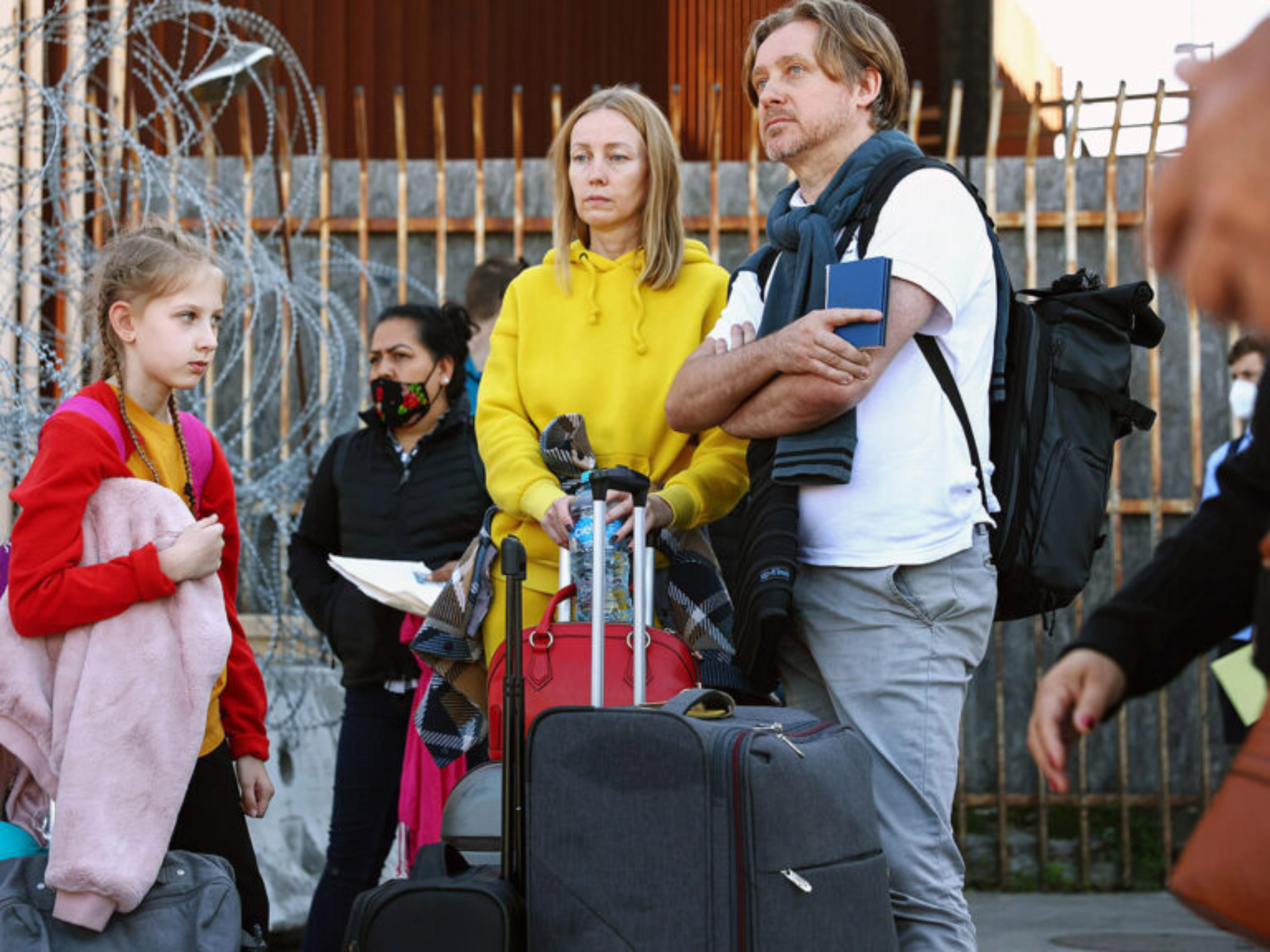The Russian war in Ukraine has destroyed millions of families. Children and women have been separated from their fathers and husbands for over two years. According to a survey conducted this year by the International Rescue Committee (IRC), an organization that helps refugees worldwide, 74% of Ukrainians report being separated from a close family member due to the war. In February 2022, when Russia invaded Ukraine, Ukrainian writer Anna Gorozhenko and her daughter Yara, who was then only seven years old, left their home in a suburb of Kyiv.
Under military law, Ukrainian men aged 18 to 60 are not allowed to leave the country unless they have special permission. Thus, Anna left with her daughter and left behind her husband, Alex. They found refuge in York, England, where a local family welcomed them into their home. Anna was able to find a job, and Yara continued school in England and made new friends. Over time, Anna saw many of her refugee friends’ marriages failing, but Yara remained frightened and refused to return to Ukraine, even for a visit. Therefore, last September, Anna made the difficult decision to return to Ukraine, leaving Yara in Yorkshire, in a small house she had rented in the village of Poppleton, under the care of her mother-in-law and Yara’s grandmother, who also had fled Ukraine.
Departure
From a pre-war population of around 40 million, about 6 million Ukrainians, mostly women and children, have left the country. Three million or more have been displaced internally to escape the fighting.
Some began this process in 2014, when the war in Donbas began and Russia annexed Crimea. Millions of parents, brothers, and sisters have been separated. Mothers and fathers who serve in the military are sent to serve as soldiers for months on end. As the military is weakened by new Russian attacks, leave permissions are often delayed.
What Ukrainians have begun to call “The Great War” is now in its third year. Families like Anna’s have been forced to make very difficult decisions, weighing the significant challenges of geographical distance, financial constraints, security, education, and the well-being of their children.
Return
Now Anna has returned to Kyiv and is still unsure if she made the right decision. Her daughter Yara has changed a lot over the seven months she hasn’t seen her. “She no longer cries,” says Anna.
“I think she’s trying to be strong. She feels as if she now has to be the head of the household, take care of her grandmother, and be her translator.” Anna continues to focus on working to provide income for the family. For her husband Alex, it is also very difficult. “At seven years old, Yara was a little girl; now she is almost a teenager.” When her father calls, Yara often says she is too busy to talk.
There are hundreds of thousands of similar stories. For many fathers separated from their children, years of phone calls cannot compensate for the absence of daily physical contact. Oleksiy (prefers not to use his last name), who worked as a surfing coach in Kherson before the war, was initially happy when his partner, from whom he had separated, took their young son Yan, now six years old, and left for Chicago.
But now he hasn’t seen his son for almost three years. “I see him growing up through the phone,” says Oleksiy. “He speaks English now. I try to make up games for him. But I can’t hide that all of this is torture. It’s a black hole. It’s the greatest pain you can feel, greater than the pain of being under occupation, than the war, or anything else.”
Soldiers who serve can travel abroad, but often it is difficult to get leave. Denys Kulikov, a military psychologist, says that after the fear of death, separation from family is the second most common cause of psychological distress. “It affects the morale of soldiers. They are dissatisfied, sad, despairing, and even have suicidal thoughts.” He has seen cases where soldiers are “so distressed that they haven’t been able to see their child for so long and can’t leave the country that when they don’t get leave, they get so angry that they don’t want to obey orders.”
Difficulties
While fighting on the front lines, soldiers try to maintain the best possible relationships with their families through intermittent internet connections.
Mr. Kulikov says that fathers often film videos of animals, cats, and dogs that enter their camps, even birds and mice, to somewhat boost morale.
He says that often single mothers who serve in the military are forced to resign and return home. (Single parents are allowed to leave their duties, and women make up 30% of the Ukrainian army.)
It is a bitter irony, he says, that “the main motivation for a soldier is to protect and keep their family safe, and at the same time, the main problem for those serving is that they cannot see their own families.”
Women are increasingly traveling from the countries where they have settled, to Ukraine, to visit their husbands, relatives, and homes, says Joanna Nahorska, a spokeswoman for the IRC.
About 4.6 million of the people who left in 2022 may now have returned permanently. Ukrainians in EU countries are under the EU’s temporary protection directive, which grants them temporarily the same rights and services as EU citizens.
Although this has been regularly renewed and is valid at least until March 2026, more sustainable solutions have not been possible. You have to make an impossible choice, says Ms. Nahorska, “To continue living abroad, to move constantly between two countries, or to return permanently and try to live amidst fear, blockades, and alarm sirens?”







